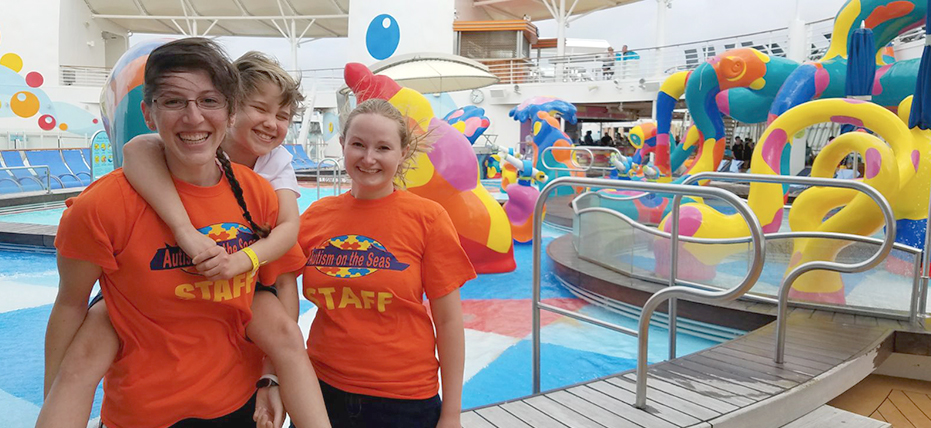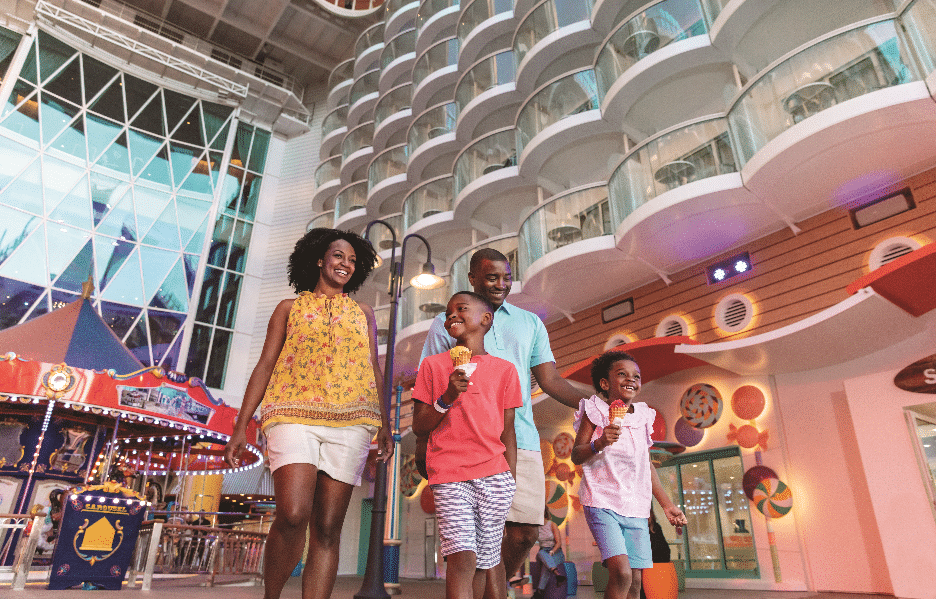Summary
Cruises are a fantastic way to travel, combining exciting destinations with the comfort of a floating resort. For neurodiverse travelers and their families, they can be an excellent option due to their self-contained nature and the increasing availability of sensory-friendly and accessible programs. With a bit of planning and the right cruise line, a cruise can be a stress-free and enjoyable experience for neurodiverse individuals.

Cruises are a fantastic way to travel, combining exciting destinations with the comfort of a floating resort. For neurodiverse travelers and their families, they can be an excellent option due to their self-contained nature and the increasing availability of sensory-friendly and accessible programs. With a bit of planning and the right cruise line, a cruise can be a stress-free and enjoyable experience for neurodiverse individuals.
Here’s what you need to know about cruising with neurodiverse needs and how to choose the best experience.
Why Cruises Work Well for Neurodiverse Travelers
- Predictability: Cruises follow a set itinerary, making it easier to plan routines.
- Variety of Activities: From quiet lounges to engaging kids’ clubs, cruises offer options to suit diverse needs.
- All-Inclusive Features: Meals, entertainment, and accommodations are bundled, reducing the need for transitions between different environments.
- Dedicated Support Programs: Many cruise lines now offer accessibility services for guests with hidden disabilities.

Cruise Lines with Neurodiverse-Friendly Programs
1. Royal Caribbean International
Royal Caribbean leads the way in accommodating neurodiverse guests with its Autism-Friendly Program.
- What They Offer:
- Priority check-in, boarding, and departure.
- Special dietary accommodations.
- Autism-friendly movies and sensory-friendly toys available onboard.
- Staff trained to assist guests with Autism and sensory sensitivities.
- Best For: Families looking for a wide range of activities and excellent kids’ programming.
2. Celebrity Cruises
A sister company to Royal Caribbean, Celebrity Cruises also provides accessible options for neurodiverse travelers.
- What They Offer:
- Personalized boarding and disembarkation assistance.
- Autism-friendly amenities like sensory toys and visual aids.
- Quiet areas and low-sensory dining options.
- Best For: Travelers seeking a more relaxed, luxury-focused experience.
3. Carnival Cruise Line
Carnival focuses on family fun and provides accommodations for neurodiverse passengers.
- What They Offer:
- Youth staff trained in working with children with disabilities.
- Flexible kids’ club activities tailored to individual needs.
- Priority boarding for families needing extra time.
- Best For: Families with young children who enjoy vibrant, energetic environments.
4. Disney Cruise Line
Disney Cruise Line delivers its trademark magic while offering robust accommodations for neurodiverse travelers.
- What They Offer:
- Autism-friendly youth programs and sensory-friendly movies.
- Private meet-and-greet opportunities with Disney characters.
- Calming areas on board for downtime.
- Best For: Families who want to blend sensory accommodations with Disney’s whimsical experiences.
5. Norwegian Cruise Line (NCL)
NCL’s Freestyle Cruising concept offers flexibility, making it easier to adapt to the needs of neurodiverse travelers.
- What They Offer:
- Flexible dining schedules with no fixed seating times.
- Private spaces for quiet moments.
- Crew members trained in accessibility and special needs assistance.
- Best For: Travelers who prefer a less structured, more laid-back approach to cruising.

Tips for a Smooth Cruise Experience
Before Booking
- Research Cruise Lines: Look for programs or services specifically designed for neurodiverse travelers.
- Choose the Right Cabin: Select a stateroom in a quiet area of the ship to minimize noise and foot traffic.
- Plan Your Itinerary: Look for shorter cruises or itineraries with fewer sea days if prolonged downtime could be challenging.
Preparing for the Trip
- Notify the Cruise Line: Contact the cruise line’s accessibility department to discuss specific needs, such as dietary preferences, mobility aids, or sensory accommodations.
- Create a Visual Schedule: Use visuals or a calendar to map out daily activities and destinations, helping prepare for transitions.
- Pack Comfort Items: Include noise-canceling headphones, sensory toys, and favorite snacks in your luggage.
Onboard Tips
- Locate Quiet Zones: Familiarize yourself with calming spaces like libraries, spa lounges, or adult-only decks.
- Utilize Kids’ Clubs: Many offer tailored programs and one-on-one attention for neurodiverse children.
- Take Breaks: Cruises can be stimulating; plan for downtime between activities.

Sensory-Friendly Activities to Try Onboard
- Movies Under the Stars: Some cruise lines offer sensory-friendly screenings with adjusted lighting and volume.
- Relaxation Areas: Many ships have adult-only solariums or pools ideal for quiet relaxation.
- Creative Workshops: Look for arts and crafts sessions or cooking classes, which often have smaller group sizes.
- Calm Ports of Call: Choose excursions with minimal sensory stimulation, like private beach days or guided nature walks.
Excursions and Ports
When planning shore excursions, look for activities that align with sensory preferences. Consider:
- Private tours for more control over the environment.
- Beach trips with designated quiet zones.
- Excursions with shorter durations to avoid overwhelm.
Final Thoughts
Cruising is an increasingly inclusive travel option, with many lines stepping up to accommodate neurodiverse passengers. With a little preparation and communication, it’s possible to create a memorable and stress-free cruise experience for everyone in your family.
Ready to embark on a sensory-friendly adventure? Let me help you find the perfect cruise for your needs!
